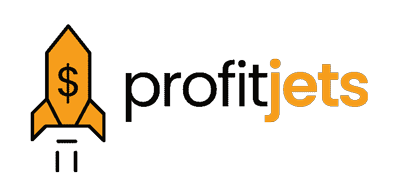Financial statement(s) refers to the written record(s) which reflect a company’s financial activities. Accountants rely on these documents to guarantee precision, whether it’s for tax compliance, securing financing, or making informed investment decisions. Government agencies also use it for auditing.
Financial statements encompass various crucial documents, such as the income statement, balance sheet, cash flow statement, and statement of equity changes. Also, non-profit organizations use different types of financial statements.
The data reflected in the financial statements pave the way for investors and analysts to predict the company’s performance and potential. It also helps in predicting and projecting stock prices. They are also used to prepare annual reports and presentations that reflect the company’s performance. Financial statements facilitate financial analysts, creditors, and investors to evaluate a company’s potential.
Table of Contents
Why are Financial Statements important?
Financial statements are of significant importance as these documents show the performance and financial health of an organization. These documents are helpful for the company, government bodies, and the general public in several ways.
These documents help evaluate a company’s fiscal performance in a specific period. It helps companies make informed decisions regarding their operations, track their activities, assess efficiency, and identify emerging trends. Furthermore, they contribute to enhancing accountability and transparency within the enterprise. Companies can highlight their commitment to ethical business practices by highlighting crucial information.
Additionally, financial statements play an important role when it comes to predicting the future and planning. They facilitate companies in developing strategies for achieving their business goals and making better decisions.
An accurate and reliable financial statement can enhance investor’s confidence in the company. It not only upholds a positive reputation but also reinforces the perception that the company is committed to transparency and ethical practices. By divulging information about its fiscal activities, it portrays itself as a well-managed organization dedicated to maintaining integrity and accountability.
Companies are mandated to prepare and disclose their financial activities through these documents to comply with regulatory requirements. Regulatory authorities and government bodies utilize these documents for auditing purposes, thereby ensuring that the data provided is accurate, consistent, and reliable.
Failure to adhere to these standards could result in penalties or disqualification for engaging in unethical business practices.

Benefits of Financial Statement
Financial statements can be considered “crystal balls.” They show the company’s fiscal performance along with how much money it has, how much it earns, and how much it has to pay. They provide a comprehensive overview that aids decision-making regarding purchases and investments. Serving as tools for growth, these documents enable companies to enhance their performance by effectively monitoring profits, losses, and expenses.
Financial statements serve as a guide in helping businesses achieve their goals. Through careful analysis of these statements, corporations can make informed business decisions based on the economic data presented. This process allows them to align their strategies with their financial realities, enhancing their chances of success and sustainable growth.
Financial statements provide essential insights for analysts to identify various aspects of a company’s operations. They help pinpoint areas where cost-saving measures can be implemented effectively and highlight opportunities for strategic investments. They also inform decisions on which business strategies to adopt for optimal performance and growth.
Moreover, financial statements are an effective tool for building trust between the company and its shareholders. It works as a trustworthy friend and paves the way for a solid professional relationship by nurturing reliability and confidence.
Financial statements allow companies to critically analyze and compare their performances with those of their competitors in the industry. They provide insights into how they are performing compared to other corporations. Financial statements are potent tools in helping businesses learn and improve. These statements help businesses learn from other companies, encourage them to improve their performance, and set more ambitious goals.
What are the three Basic Financial Statements?
Financial statements have a vital role to play in the growth of a business. There are different kinds of financial documents, with one having a “knock-on effect” on others. A company cannot get a complete overview of its performances, earnings, losses, expenses, equities, and liabilities with one type of statement.
It can get a deeper understanding of its financial well-being by recording its information in various kinds of statements.
There are three basic kinds of financial statements.
1. Income Statement
The income statement is also known as the profit and loss statement. This particular financial statement is used to record a company’s income, revenue, and expenses. It provides a snapshot of the company’s financial performance over a specific period, detailing its earnings and expenditures. By examining this statement, the company can gauge whether it has achieved profitability or fallen short of its objectives.
2. Balance Sheet
A balance sheet offers a breakdown of the company’s assets, liabilities, and owner and shareholders’ equity at a specific period.
The asset section includes all those properties and resources that have economic benefits, such as cash, liquid assets, Treasury bills, deposit certificates, accounts receivable, inventory, prepaid expenses, capital assets, investments, and intangible assets.
Liabilities, on the other hand, represent obligations or amounts owed by the company to external parties. These are accounts payable, wages payable, notes payable, dividends payable, and various forms of debt.
To calculate shareholder’s equity, you subtract the total value of liabilities from the total value of assets. This figure represents the portion of the company’s assets that belongs to its owners and shareholders. It reflects the company’s net worth or book value and indicates the residual interest in the company’s assets after deducting its liabilities.
3. Cash flow statement
While the cash flow statement shares similarities with the income statement, it serves a distinct purpose by tracking the movement of cash in and out of a business. It records the timing and sources of cash inflows and outflows, providing valuable insights into the company’s liquidity and cash management practices.
What are the other Financial Statements?
Businesses use other financial statements to track and analyze their financial activities. These documents play an essential role in managing financial performance and helping organizations set new goals.
1. Statement of Changes in Shareholder Equity
As the name suggests, the Statement of Changes in Shareholder Equity documents the transactions regarding shareholder’s equity over a given period. It helps in tracking what is to be paid to the owners and shareholders. It reflects the earnings, dividends, share capital, and other factors that led to the increase and decrease in the equity of the company’s net book value.
2. Statement of Comprehensive Income
The Statement of Comprehensive Income provides a comprehensive summary of a company’s financial performance by combining the standard net income from the income statement with Other Comprehensive Income (OCI).
OCI includes unrealized gains and losses that are not reported on the income statement but are relevant for understanding the company’s overall financial position. By incorporating OCI, the statement reflects the total change in the company’s income and profit and loss according to accounting rules, offering stakeholders a complete picture of the company’s financial performance.
3. Non-profit Financial Statements
Non-profit organizations tend to record their financial transactions similar to for-profit entities. However, the structure and focus of non-profit financial statements differ to reflect their unique operating model and objectives.
- Statement of Activities: It is equivalent to an income statement and is used for tracking donations, grants, changes in operation, expenses on the events, and revenue generated from it.
- Statement of Functional Expenses: This statement records the expenses on an event or a function, such as program services, management, and general and fundraising expenses. It helps organizations explain what proportion of expenditures is being spent for their welfare mission, which is directly related to the mission.
- Statement of Cash Flow: It is equivalent to a cash flow statement. Despite the fact that non-profit organizations have different operations, there are sections for operating, investing, and financing activities.
- Statement of Financial Position: It is equivalent to a balance sheet except that there are no equity positions in a non-profit organization, the balances have been liquidated, and the liabilities are referred to as “net assets.”
How to Make a Financial Statement?
There is a process for preparing a financial statement. Most public-owned companies in the US have to follow the guidelines set by the Generally Accepted Accounting Principles (GAAP). It helps us understand how the transactions are recorded and how the revenues and expenses are recognized. International companies also adhere to a similar rule called the International Financial Reporting Standards (IFRS).
How to Read a Financial Statement?
There are several ways to read a financial statement. First and foremost, these documents can be studied and compared to prior periods for understanding business trends and activities over time.
They can be read to understand the company’s performance compared to its partners and competitors. They help analysts understand which companies are thriving and earning profit and which organizations are failing to meet their objectives.

Conclusion
Financial statements are documents that showcase a company’s financial performance over a period of time. They help convey crucial information about the company to its employees, owners, and other stakeholders.
Moreover, it facilitates the company in generating favorable returns and fulfilling its financial and legal obligations. These tools are potent tools for identifying the areas of improvement while ensuring transparency and accountability. They enhance confidence and build trust among stakeholders.










![Bookkeeping for Trucking Companies [2024 Latest]](https://profitjets.com/wp-content/uploads/2024/02/Featured-Image-27.webp)


![Bookkeeping Tips for Dentists [2024 Latest]](https://profitjets.com/wp-content/uploads/2024/02/Featured-Image-26.webp)





![Bookkeeping for Real Estate Investors [2024 Latest]](https://profitjets.com/wp-content/uploads/2024/01/Featured-Image-24.webp)





